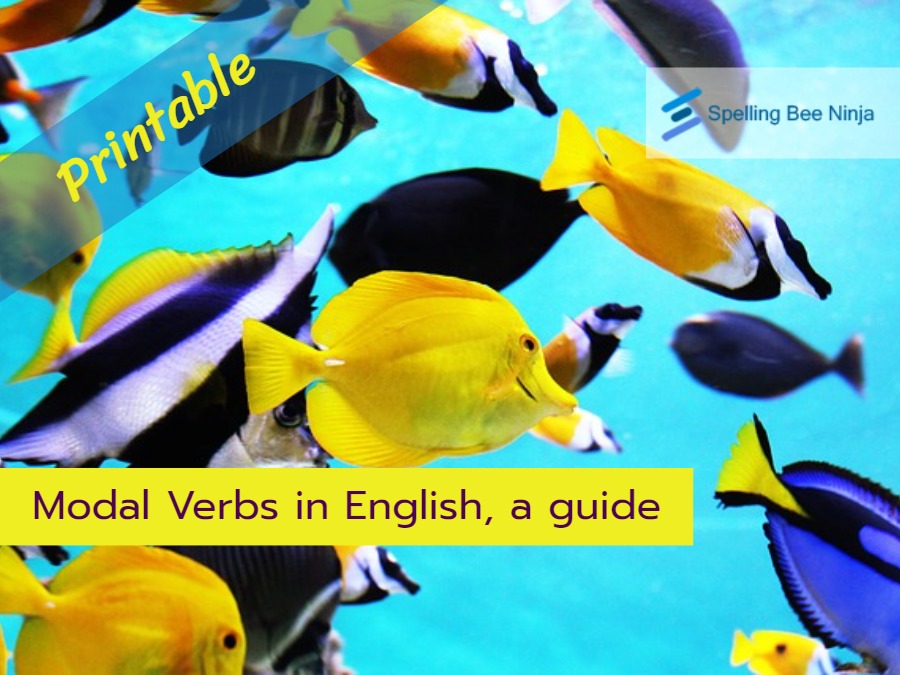- ✈️ How to Use Articles in English
- 🐝 Mastering Adjectives: A Key to Enhancing Your Writing Skills
- 🎮 Pronoun Puzzle: A Fun Way to Practice Personal and Possessive Forms
- 🎮 Adjective Adventure: Descriptive Word Search!
- ✈️ How to use prepositions in English
- ✈️ English Adverbs – 5 Quick and Easy ways to learn.
- The definitive pronouns list
- 🐝 Understanding conjunction words and where to use them
- ✈️ Modal Verbs in English: A Comprehensive Guide
- 🐝 Prepositions list – The definitive guide
- ✈️ Active and Passive Voice
- ✈️ What vs Which: differences and examples
- 🐝 Complete transition words list
- ✈️ How to Use Punctuation in English
- ✈️ Exploring the Difference Between “Will” and “Shall” in English
- ✈️ The Difference Between Could, Should, and Ought in English
- ✈️ Common Idiomatic Expressions in English
- ✈️ 40 English Prefixes and their meanings
- ✈️ 30 Most common English suffixes and their meaning.
- 🐝 Linking Words In English And How To Learn Them Effectively
- ✈️ Comparative and Superlative Adjectives
- ✈️ The Six Noun Types (Common, Proper, Countable, Uncountable, Collective, Abstract)
- ✈️ Understanding English Clauses: A Complete Guide
- ✈️ Understanding Sentence Structure in English
- ✈️ Gerunds and Infinitives: Understanding Verb Complements in English
- ✈️ Common Pronunciation Mistakes and How to Fix Them
- ✈️ Question Formation in English
- ✈️ Common Sentence Errors: Fragments, Run-ons, and Misplaced Modifiers
- ✈️ Say What?! A Fun Guide to Direct and Indirect Speech
- ✈️ Commonly Confused Words
- 🐝 ELA vocabulary: Essential English Language Arts Terms Every Student Should Know
- ✈️ Formal vs. Informal Language
- ✈️ Mastering Phrases in English Grammar
- ✈️ Conditionals (Zero, First, Second, Third, Mixed Conditionals)
- ✈️ Emphasis and Inversion in Sentences
- ✈️ Understanding and Using the Imperative Form
Introduction
Modal verbs are a critical part of English grammar, enabling speakers to express various shades of meaning, such as ability, possibility, permission, obligation, or necessity. Unlike regular verbs, modal verbs are auxiliary, meaning they modify the main verb to reflect mood or intention rather than performing an action themselves.
This article explores modal verbs with clear definitions, examples, and explanations to deepen your understanding. Additionally, you’ll find links to related resources in our app for further learning.
What Are Modal Verbs?
Modal verbs are auxiliary verbs that pair with the base form of a main verb to indicate:
1. Ability (can, could)
2. Possibility (may, might, could)
3. Permission (can, may)
4. Advice or Obligation (should, ought to, must)
5. Necessity (must, have to)
6. Future actions (Will, Shall)
Some of the most common modal verbs in English include:
– Can
– Could
– Shall
– Should
– Will
– Would
– May
– Might
– Must
– Ought to
Key Features of Modal Verbs
1. No Infinitive or -s Forms
Modal verbs do not take an infinitive form (e.g., “to can”) or conjugated forms (e.g., “cans”).
2. Followed by the Base Form of the Verb
They are always followed by the base form of the main verb.
– She can swim.
– They should study.
3. Negation
Most modal verbs form negatives by adding *not*:
– He should not go there.
– You cannot enter.
Common Modal Verbs and Their Uses
1. Can and Could
– Can: Indicates present ability, permission, or possibility.
– I can play the guitar. (ability)
– You can leave early today. (permission)
– Could: Refers to past ability or conditional possibility.
– I could swim when I was five.
– We could go to the party if we finish on time.
2. May and Might
– May: Expresses formal permission or possibility.
– You may start the exam now.
– It may rain tomorrow.
– Might: Indicates less certainty or a hypothetical situation.
– We might go to the park if it’s sunny.
3. Must and Have To
– Must: Highlights necessity or strong obligation.
– You must wear a helmet while riding.
– Have to: Used interchangeably with must for obligation.
– I have to finish my homework before dinner.
Special Cases: Should, Shall, and Ought to
– Should: Expresses advice, expectations, or mild obligation.
– You should apologize for being late.
– Shall: Rarely used today, it indicates future intent (formal or legal).
– We shall overcome.
– Ought to: A formal equivalent of *should*, focusing on moral duty.
– You ought to respect your elders.
Modal Verbs in Negative and Interrogative Sentences
Modal verbs also adapt easily to questions and negatives:
– Negative: Add “not” or use contractions (cannot → can’t).
– He must not forget his passport.
– You can’t enter without a ticket.
– Interrogative: Invert the modal and the subject.
– Can I borrow your book?
– Should we leave now?
Modal verbs table
Here is a table listing the modal verbs in English, their functions, and examples for clarity:
| Modal Verb | Primary Function | Examples |
|---|---|---|
| Can | Ability, permission, possibility | I can swim. / You can borrow my book. |
| Could | Past ability, polite requests, possibility | She could sing well as a child. / Could you help me? |
| May | Permission, possibility | You may leave early. / It may rain today. |
| Might | Possibility, hypothetical situations | We might visit Paris. |
| Shall | Formal future intent, suggestions | Shall we go to the park? |
| Should | Advice, obligation, expectation | You should exercise daily. |
| Must | Necessity, strong obligation, deduction | You must finish your homework. / He must be tired. |
| Will | Future intent, certainty, willingness | I will call you tomorrow. |
| Would | Polite requests, hypothetical situations | Would you mind opening the window? |
| Ought to | Moral obligation, advisability | You ought to respect your parents. |
| Need | Necessity (in negatives or questions) | You needn’t worry. / Need I say more? |
| Dare | Boldness or challenge (in negatives or questions) | Dare you speak to him? |
Remember:
- Modal verbs don’t conjugate or take an infinitive (to form). For example, you don’t say “to can” or “cans.”
- They are followed by the base form of a verb (She can run fast).
For more detailed explanations and practice exercises, check out the Grammar Tutorials on Spelling Bee Ninja.
Quiz Yourself!
Put your knowledge to the test with a comprehensive quiz. The quiz includes examples, scenarios, and explanations to help you better understand modal usage.
Conclusion
Mastering modal verbs is a step toward fluency in English. Their versatility allows you to communicate effectively in diverse situations, from giving advice to expressing possibility. To dive deeper into modal verbs and their applications, explore more resources and exercises on Spelling Bee Ninja. Keep practicing, and you’ll soon wield these verbs with confidence!



